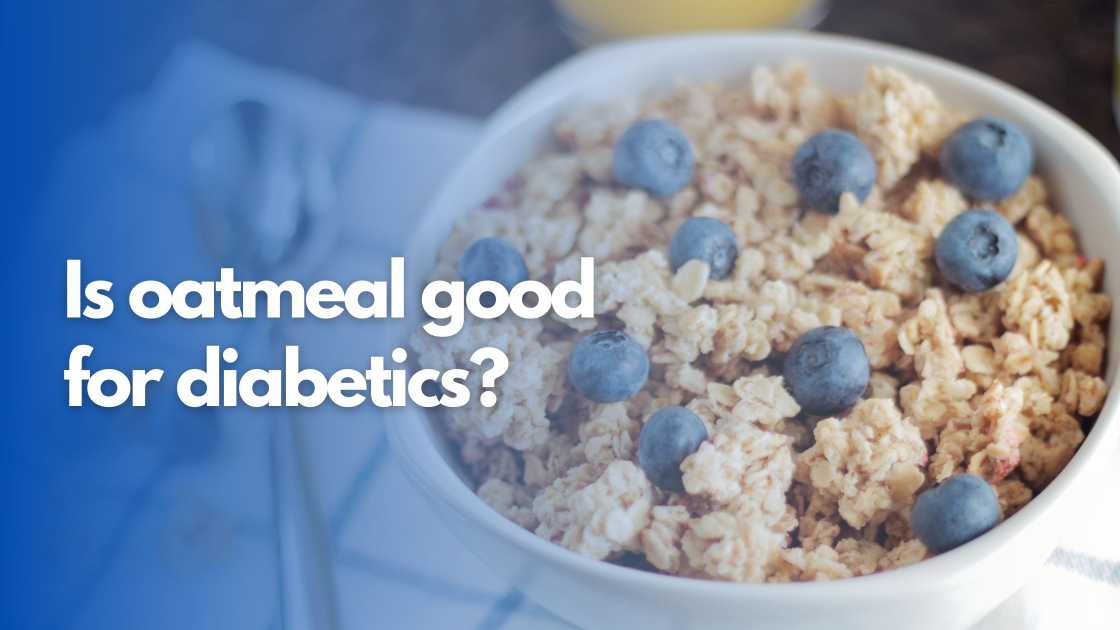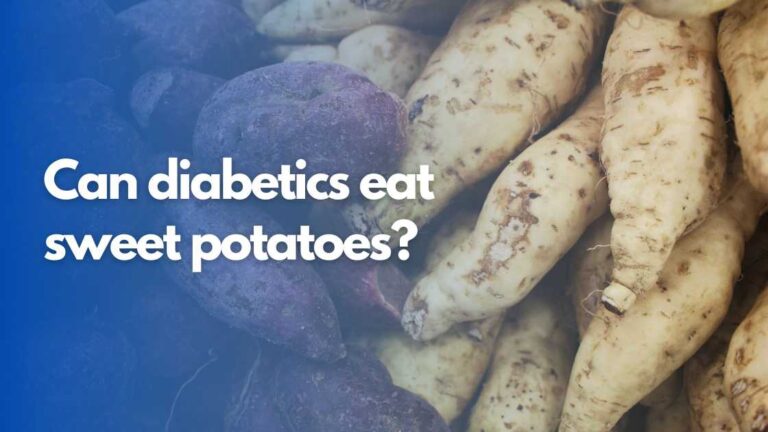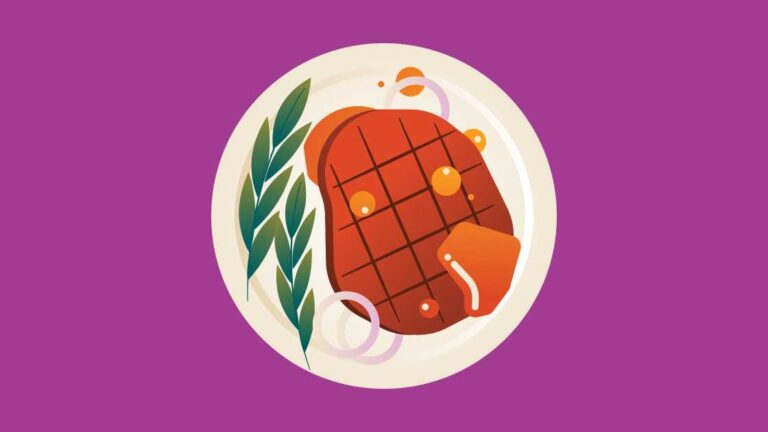Is oatmeal good for diabetics?
Diabetes is a metabolic disorder that affects the body’s ability to make and use insulin. This makes it difficult to keep blood sugar levels in a safe range, which is critical for diabetics’ health.
Because carbs directly affect blood sugar, it’s critical to limit the amount of carbohydrates consumed in one sitting when regulating blood sugar.
Oatmeal is a high-carbohydrate cuisine that is also one of the most popular breakfast options. People with diabetes may be concerned about whether or not it is safe for them to eat.
This article answers the question, “Is oatmeal healthy for diabetes?”
Oatmeal
Oatmeal has been a popular morning item for a long time. It’s prepared from oat groats, which are oat kernels stripped of their husks. Steel-cut (or chopped), rolled, or “instant” oat groats are commonly used.
The more processed the oats are, such as instant oats, the faster they are absorbed and the more quickly blood sugar levels might rise.
Oatmeal is typically prepared with liquid and served warm, with nuts, sugars, or fruit as garnish. It can be prepared ahead of time and reheated for a quick and easy breakfast.
Because oatmeal has a lower glycemic index than other breakfast options like cold cereal with added sugar, breads with added jelly, or pancakes with syrup, it may be a healthier choice.
Diabetics can test their blood glucose levels after eating various breakfast meals to see how their blood sugar reacts. Oatmeal can also help with heart health, which is vital for diabetics who are at risk for heart disease.
Is oatmeal good for diabetes?
Oatmeal is good for people with diabetes. Oatmeal has a low glycemic index (GI), and its soluble fiber and therapeutic components may help patients manage diabetic indicators.
In this section of the article, you will get to know in detail why oatmeal is good for diabetics (glycemic load and glycemic index)
Glycemic index of oatmeal
It is a numerical scale of numbers between 0 and 100 which is used to describe how eating one food will raise blood sugar levels. There are 3 categories of the glycemic index namely low, medium and high.
The lower the glycemic index of a food, the lower the chances of the food affecting your blood sugar levels, the higher the glycemic index of a food, the greater the chances of the food affecting your blood sugar levels.
The low glycemic index ranges from 0 to 55
The medium glycemic index ranges from 56 to 69
The high glycemic category ranges from 70 to 100
Oatmeal made from rolled oats has a GI score of 55 per serving, while instant oatmeal has a score of 79, according to Harvard Health [source].
Oatmeal made from rolled oats are safe to eat but instant oatmeal should be taken in moderate amounts.
Glycemic load
Glycemic load is a tool used to measure the amount of carbohydrate in a portion of food together with how quickly it increases blood glucose levels. It is very helpful to people with diabetes. This tool helps them to assess which quantities of foods are most suitable for maintaining good blood glucose levels.
The classification of glycemic load is as follows:
Low: 0 to 10
Medium: 11 to 19
High: 20 and above
According to data published in the American Journal of Clinical Nutrition, rolled oats have a glycemic load of 9 (low), while instant oats have a GL of 24 (high) [source].
Based on the glycemic index and glycemic load values stated above, rolled oats are much safer to eat by diabetics than instant oats. This means that oatmeal is relatively good for diabetics.
Health benefits of oatmeal
Despite being a high-carb food, oatmeal may provide various benefits for persons with diabetes.
Lowers your blood sugar levels.
Oats are unique in that they contain beta glucans, which are a form of fiber. According to a comprehensive review published in the journal Nutricion Hospitalaria, ingesting beta glucans was adequate to help persons with diabetes lower their blood glucose levels [source].
This would not help blood glucose levels reach normal levels by itself, according to the review, but it could be a useful adjunct to other healthy diabetic behaviors.
Heart-friendly
Diabetes patients may often require treatment for other illnesses, such as high cholesterol. Because of the beneficial beta glucans in oats, they may be especially beneficial to them.
According to research published in the American Journal of Clinical Nutrition, adding three or more grams of beta glucans from oats to the diet helps reduce bad cholesterol levels while keeping good cholesterol levels the same [source].
Feeling full
Oatmeal, for example, is high in fiber, which may help the body feel full for longer. This could make it simpler to resist snacking throughout the day, which could help with blood sugar control overall.
Feeling full may also assist some people in reducing their daily calorie intake. This may assist them in maintaining their optimal weight or shedding additional pounds.
Increased insulin sensitivity for a short period of time
Consuming oats at each meal may also assist to increase insulin sensitivity.
According to a systematic review published in the journal Nutrients, people with type 2 diabetes who ate oatmeal had improved glucose and insulin responses than people who ate a similar control meal [source].
It’s crucial to keep in mind that this is a little adjustment, and merely eating more oats won’t increase insulin sensitivity permanently.
Summary
Oatmeal is good for diabetics and, when prepared properly, has a number of benefits that can be beneficial to everyone. Replace other highly refined, sweetened morning cereals with this one if you have diabetes. Keep in mind that, like with any carbohydrate source, portion proportions are important.







Leave a Comment